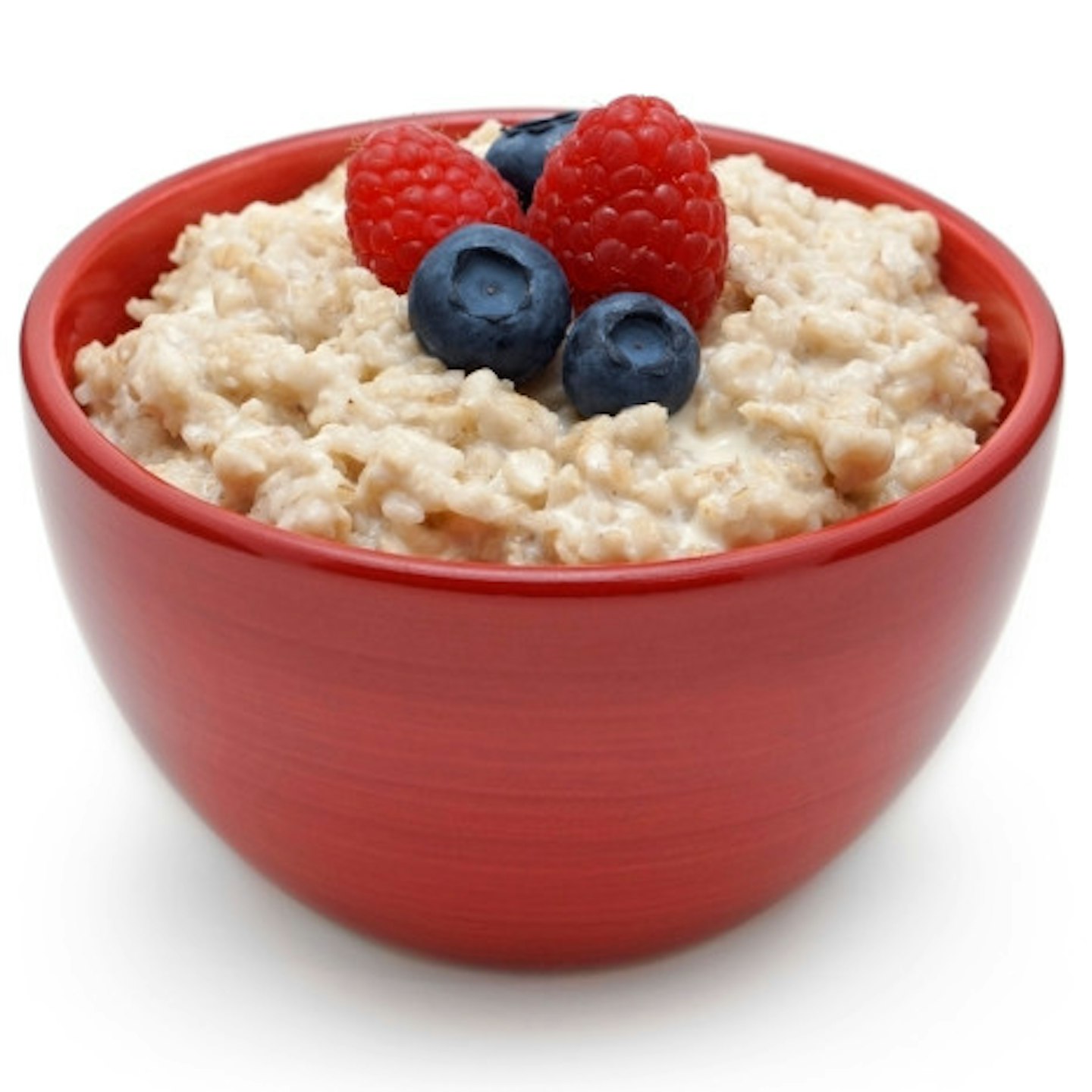FIRST THINGS FIRST, WHAT IS RAMADAN?
Ramadan is observed by Muslims worldwide as a month of fasting to commemorate the first revelation of the Quran to Muhammad according to Islamic belief.
The fast (sawm) begins at dawn and ends at sunset each day, so Muslims will not eat or drink during daylight hours.
This annual observance is regarded as one of the Five Pillars of Islam.
WHEN DOES RAMADAN TAKE PLACE?
Ramadan takes place in the ninth month of the Islamic calendar, and lasts for 29–30 days based on the visual sightings of the crescent moon.
IS FASTING HARMFUL WHEN A WOMAN IS PREGNANT?
According to the NHS, there is some medical evidence to show that fasting during pregnancy is not a good idea - and it is particularly unsafe for pregnant women who have diabetes to fast, as it can wreak havoc with your blood sugar levels.
However, if a pregnant woman feels strong and healthy enough to fast, she may do so.
Make sure you visit your midwife or GP for a checkup before making any decisions.
DO I HAVE TO FAST?
Islamic law gives pregnant women clear permission not to fast if they feel they are unable to do so.
This means that, if you feel unwell, or you fear fasting could harm your baby, you can choose not to fast during Ramadan and instead perform fidyah (a method of compensation for a missed act of worship, such as paying for someone to be fed).
One woman explained: “I am muslim and currently 8 months pregnant. I am currently not fasting but am planning to make up these 30 days when I am able.
“Fasting for us helps us realise how fortunate we are. It’s a very rewarding month and always strengthens my faith every year.”
If you are still unsure as to whether or not you should fast, consider a trial day to see how you feel, and then return to your GP or midwife.
They should be able to advise you on the best course of action.

HOW WILL MY BODY COPE WITH FASTING?
If your weight and lifestyle are generally healthy you are likely to cope better with fasting. Your baby needs nutrients from you, and if your body has enough energy stores, fasting is likely to have less of an impact.
How your body will cope with fasting will also depend on:
-
Your general health
-
Your stage of pregnancy
-
The length of time you fast during the day
The temperature (fasting during the summer is likely to be harder work than it would be during the winter).
HOW SHOULD I PREPARE FOR FASTING?
It is a very good idea to plan ahead if you intend to fast for Ramadan during your pregnancy.
You should endeavour to:
-
Speak with your midwife or doctor beforehand, to make sure that you are suitably healthy for the fast. You may also wish to schedule regular check-ups throughout the month, to ensure your body is handling things properly.
-
Work out a meal plan, to ensure that all of your (and the baby’s) dietary needs are met.
-
Cut back on caffeinated drinks (and sugary snacks) before the fast, so as to reduce the chances of withdrawal headaches throughout Ramadan.
-
Speak to your employer about reducing your working hour or having extra breaks, to ensure that you have ample time to rest.
WHAT SHOULD I EAT WHEN I BREAK MY FAST?
Choose a variety of healthy foods and have plenty to drink at Suhoor (pre-dawn meal) and Iftar (meal taken at dusk).
Top tips:
-
Drink a large glass of fruit juice immediately after breaking your fast.
-
Choose foods which release energy slowly, such as pulses, vegetables, dried fruits, and complex carbohydrates (for example; barley, wheat, oats, millet, semolina, beans, lentils, wholemeal flour and basmati rice).
-
Eat plenty of fibre-rich foods (such as bran, cereals, whole wheat, grains and seeds, potatoes with the skin on, vegetables such as green beans, and almost all fruit, including apricots, prunes and figs), as these will be digested slowly.
-
Aim for foods high in protein, to keep baby growing nicely. Meat, beans, nuts, and eggs will all help towards this.
-
Avoid refined carbohydrates (sugar and white flour) and fatty foods, such as cakes, biscuits, chocolates, and sweets.
-
Avoid caffeine-based drinks, as they stimulate faster water loss through dehydration.
-
Avoid deep-fried foods.
-
Take pre-natal vitamins regularly.
-
Drink lots of water, to ensure your body is hydrated. Aim for around 1.5 to 2 litres between dusk and dawn.
-
If you feel thirsty throughout the day, Productive Muslim advise that you sip four little ounces of water every hour to help keep hydrated.
-
Have a small and wholesome snack before bedtime (such as porridge, raw vegetables, smoothie, or a bran-based cereal).
-
Break the fast (Iftar) immediately with some dates, in accordance with the Prophetic traditions. These will provide a burst of energy, so are a very good option for pregnant women.

WHAT ELSE CAN I DO TO MAKE FASTING EASIER?
Lack of food and water, changes to routine, and shorter periods of sleep can cause some stress.
The NHS advise: “It’s important to deal with any potential sources of stress to stop any harmful effects.
“This can be helped by not taking on more than you can handle, not playing sports in the hot sun, controlling your anger and not smoking.”
They also suggest that women keep themselves cool, to minimise risks of dehydration, avoid walking long distances, cut down on housework or any tiring activities, and plan regular rests throughout their day.
They add: “Headaches can also be prevented by not exposing yourself to direct sunlight, wearing a hat when out, using sunglasses to reduce the effect of glare from the sun and relieving any tense muscles with a short, gentle massage.“
Muslims also advise that pregnant women eat a light meal between Iftaar (the meal at sunset) and Suhoor (the predawn meal).

WHAT WARNING SIGNS SHOULD I LOOK OUT FOR WHILST FASTING?
Inform your doctor or midwife as soon as possible if:
-
You do not put on weight - or notice that you have begun losing weight.
-
You become very thirsty, are urinating less frequently, or if your wee becomes dark-coloured and strong-smelling (all of which are signs of dehydration).
-
You develop a headache or a fever.
-
Your pulse has increased.
-
You feel nauseous or begin vomiting.
Contact your doctor or midwife immediately if:
-
You faint.
-
You notice a change in your baby’s movements (either they begin moving less, or not at all).
-
You notice contraction-like pains (dehydration can bring on premature labour).
-
You feel dizzy, weak, confused, or tired - even after a rest.
AND FINALLY:
As the Productive Muslim states: “Remember what Allah subḥānahu wa ta'āla (glorified and exalted be He) says to us in Surah Al-Baqara when telling us about Ramadan.
“‘Allah intends for you ease and does not intend for you hardship” [Qur’an: Chapter 2, Verse 185]’.
“If you can fast, take care of yourself and your baby. On the other hand, if you find that it is too difficult, give thanks to Allah subḥānahu wa ta'āla (glorified and exalted be He), for he has given you a special gift: to make up these days later.”
